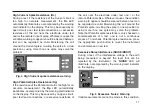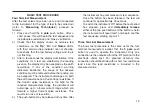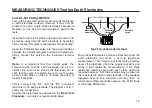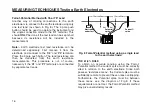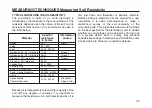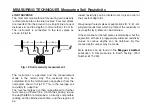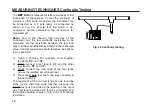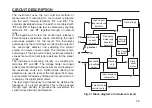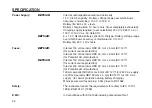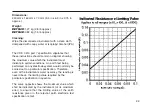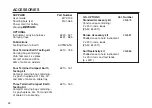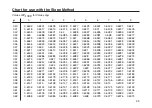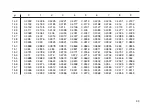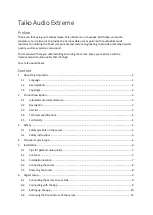
25
TYPICAL VARIATIONS IN SOIL RESISTIVITY
The resistance to earth of an earth electrode is
influenced by the resistivity of the surrounding soil. The
resistivity depends upon the nature of the soil and its
moisture content and can vary enormously as seen in
the table below:-
Because it is impossible to forecast the resistivity of the
soil with any degree of accuracy it is important to
measure the resistance of an earth electrode when it is
first laid down and thereafter at periodic intervals.
Before sinking an electrode into the ground for a new
installation it is often advantageous to make a
preliminary survey of the soil resistivity of the
surrounding site. This will enable decisions to be made
on the best position for the electrode(s) and to decide
whether any advantage can be gained by driving rods
to a greater depth. Such a survey may produce
considerable savings in electrode and installation costs
incurred trying to achieve a required resistance.
MEASURING TECHNIQUES Measuring Soil Resistivity
Material
Specific
resistance
in Ω-cms
Information
source
Ashes
Coke
Peat
Garden earth - 50% moisture
Garden earth - 20% moisture
Clay soil - 40% moisture
Clay soil - 20% moisture
London clay
Very dry clay
Sand - 90% moisture
Sand - normal moisture
Chalk
Consolidated
Sedimentary rocks
350
20 - 800
4500 - 20000
1400
4800
770
3300
400 - 2000
5000 - 15000
13000
300000 - 800000
5000 - 15000
1000 - 50000
Higgs
Ruppel
Ruppel
Ruppel
Ruppel
Broughton
Edge & Laby
Содержание DET5/4D
Страница 41: ...41...

